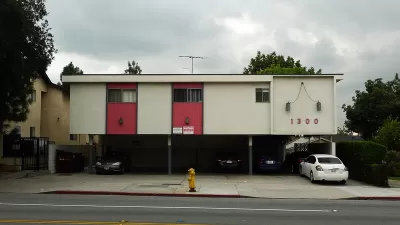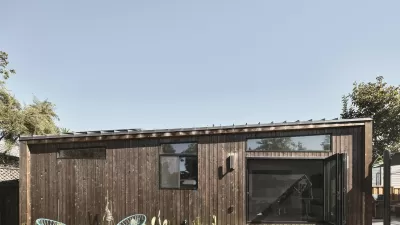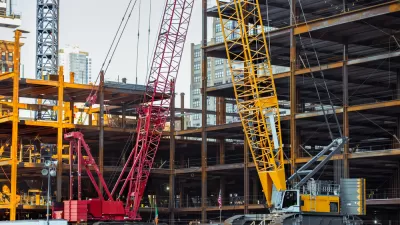The legal, and social, challenges to building more second units in Los Angeles.
The Washington Post’s Wonkblog revisits the conflict in Los Angeles around second units, or granny flats, since a 2016 lawsuit forced the city to stop issuing permits for them.
The suit itself is naturally limited to legal arguments, explored in the article. But even the land-use lawyer behind the complaint admits his opposition is also socially motivated, hinging on a desire to maintain a particular aesthetic and class sensibility in single-family neighborhoods.
Secondary units don’t just alter the scenery or erode privacy. Build enough, and a neighborhood may not truly remain single-family anymore, with all its associations of middle-class stability and nuclear families.
Advocates for second units also sometimes adopt, rather than challenge, these terms; a state senator trying to overrule local restrictions like Los Angeles’s told the Post:
"There is a mind-set in suburbia that … it’s going to be those people — which is ridiculous, because the cost of housing in California is so high that it’s really us. It’s teachers and the people that work on my staff."
While solving L.A.'s legal problems may not be easy, there is a path forward. Public resistance may be more difficult to erode. The city is launching a pilot program to showcase less "menacing" second units, Badger reports—but "a community lender is underwriting their construction loan, because traditional banks won’t finance such properties."
FULL STORY: The next big fight over housing could happen, literally, in your back yard

Planetizen Federal Action Tracker
A weekly monitor of how Trump’s orders and actions are impacting planners and planning in America.

Maui's Vacation Rental Debate Turns Ugly
Verbal attacks, misinformation campaigns and fistfights plague a high-stakes debate to convert thousands of vacation rentals into long-term housing.

Restaurant Patios Were a Pandemic Win — Why Were They so Hard to Keep?
Social distancing requirements and changes in travel patterns prompted cities to pilot new uses for street and sidewalk space. Then it got complicated.

In California Battle of Housing vs. Environment, Housing Just Won
A new state law significantly limits the power of CEQA, an environmental review law that served as a powerful tool for blocking new development.

Boulder Eliminates Parking Minimums Citywide
Officials estimate the cost of building a single underground parking space at up to $100,000.

Orange County, Florida Adopts Largest US “Sprawl Repair” Code
The ‘Orange Code’ seeks to rectify decades of sprawl-inducing, car-oriented development.
Urban Design for Planners 1: Software Tools
This six-course series explores essential urban design concepts using open source software and equips planners with the tools they need to participate fully in the urban design process.
Planning for Universal Design
Learn the tools for implementing Universal Design in planning regulations.
Heyer Gruel & Associates PA
JM Goldson LLC
Custer County Colorado
City of Camden Redevelopment Agency
City of Astoria
Transportation Research & Education Center (TREC) at Portland State University
Jefferson Parish Government
Camden Redevelopment Agency
City of Claremont





























